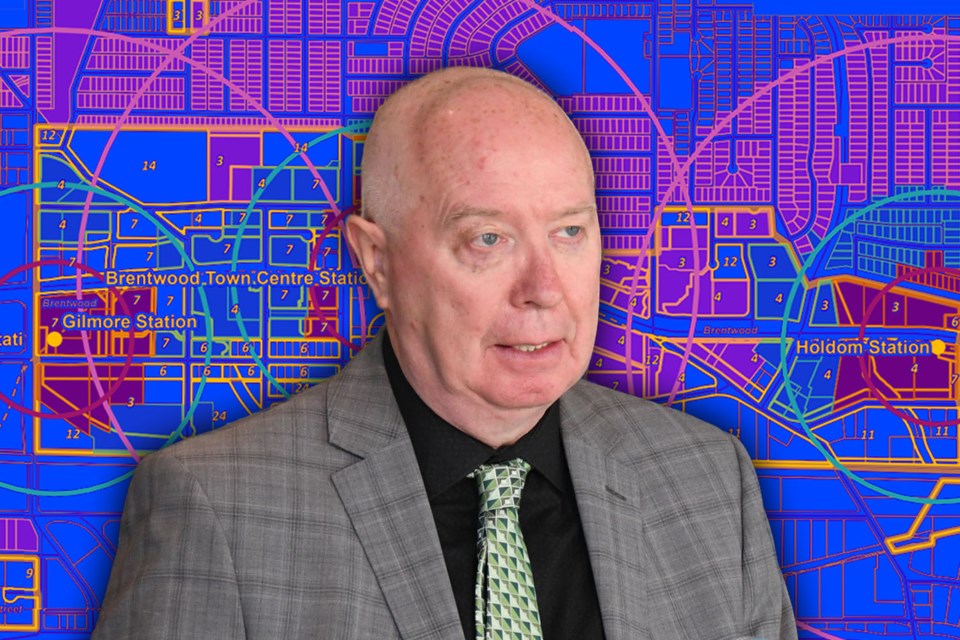In its latest protest against B.C.’s new housing legislation, Burnaby has delayed the bylaw required by the province to allow taller housing heights near SkyTrain stations.
Instead of approving three of four major approvals needed at a council meeting June 24, Mayor Mike Hurley formally tabled the bylaw for a minimum of 90 days.
There was no discussion around the council table, and the motion was approved unanimously.
After the meeting, the Burnaby NOW asked the mayor what prompted this move.
“Council just decided, you know, we just want a bit more time to investigate it and to see what happens in other municipalities,” Hurley told the NOW.
“It’s mandated; however, we think there’s more discussion to be had.”
The legislation is intended to promote the development of livable communities that are more accessible, affordable and sustainable, with easy access to transportation options, according to the Ministry of Transportation and Infrastructure.
The province requires the city bylaw to be passed by June 30; the ministry told the NOW it will review the bylaws and advise local governments if there is any non-compliance. Local governments will then have 90 days to comply.
Burnaby has followed the province’s two other major housing changes, legalizing multiplexes citywide and new development financing, but the transit-oriented areas legislation has proved controversial.
Brentwood residents have petitioned against the “transit-oriented areas,” the three rings radiating 200, 400 and 800 metres from SkyTrain stations, where the province has told municipalities to allow a minimum of eight- to 20-storey buildings.
The city lobbied the province for an exemption, but the province rejected Burnaby’s request.
Burnaby’s opposition to the provincial legislation has taken on a defiant tone before.
“What if we say no? What are they going to do? What’s the province going to do if we say no?” Hurley asked at a meeting May 27.
Council had been discussing what would happen if the city didn’t approve the transit-oriented development rules by the June 30 deadline.
If the city fails to comply, the province has the power to impose its own bylaw on the city, according to city solicitor May Leung.
But chief administrative officer Leon Gous said city staff had recommended complying to ensure the bylaw includes Burnaby-specific land uses.
He said he had “nervousness” around letting the province write bylaws for Burnaby.
“Us (drafting the bylaw) at least makes sure we are taking care of the small little nuances within Burnaby. We’re not 100 per cent sure, when the province starts stepping in and writing your bylaws, whether they’ll be as concise in it and help us as much.”
The mayor said he understood why staff were recommending the bylaw.
“I understand staff’s role – staff are going to do the legal thing, yeah, but that doesn’t mean that’s council’s role. It’s totally different.”
Gous warned the province will be ready to crackdown on municipalities that aren’t complying by June 30.
“Because it’s an election (year), I suspect they will be very ready to do that. I suspect they’re already ready in the backrooms ready to do that because I think it would be a very strong signal if they don’t, that others won’t just comply. That’s my suspicion.”
This story has been updated to include the province's remarks.





